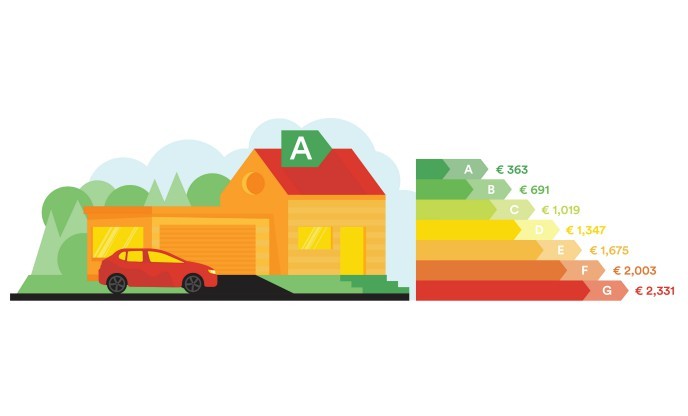The monetary value of energy efficiency gets consumers’ attention
Understanding how consumers make their purchasing decisions is critical to encouraging a transition to products with greater energy efficiency over their lifetimes. While labelling according to energy ‘categories’ is increasingly mandated, it is not clear whether/how this is affecting decision-making and what other factors might play a role. Cost is important to most people’s buying decisions. However, extrapolating financial costs over a product’s lifetime is nearly impossible without specific and individualised data, leaving consumers to decide whether it is worth spending more to buy a product that is ‘good for the environment’. The EU-funded CONSEED project set out to explore the energy efficiency investment process.
Money talks – but when do people listen?
Eleanor Denny, project coordinator and associate professor of economics at Trinity College Dublin(opens in new window), says: “Our decision model identified a large number of potential benefits, costs, enablers and barriers to the adoption of lower-energy technologies, and our core research question explored whether providing energy information in monetary terms would encourage people to buy more-energy-efficient products.” Eleven large-scale national surveys of selected products in five countries focused on: household appliances, residential properties, personal vehicles, tractors, and heating and cooling systems in the hotel sector, commercial properties and industrial machinery. Three field trials tested actual purchasing decisions by households via: an in-store field trial for household appliances, an online field trial in the property market, and an in-store field trial in the car market. Three discrete choice experiments presented participants with a choice between two products in the same category varying according to several characteristics, including price and energy efficiency.
Money talks louder when energy efficiency matters more
According to Denny: “Monetary labels increased the demand for energy efficiency. The increase was considerably larger for products with higher energy expenditure such as cars and properties and much smaller or insignificant for appliances.” As an example, a field trial in Ireland explored how adding annual energy cost forecasts to a property advertisement influenced sales prices and rents. The amount people were willing to pay for more energy efficiency increased in the areas where the new monetary label was shown, suggesting demand for energy efficiency increased because of monetary labelling. Outcomes showed that most European households are aware of value energy efficiency when investing; however, the influence on investing is mixed and lack of uptake is partly due to lack of affordability and/or financing. CONSEED made three key recommendations. First, monetary labelling should be available at the point of sale, particularly for larger investments such as properties and cars. Secondly, labelling should account for country and household consumption differences, perhaps with online/in-store comparative energy cost calculators that consider household-specific factors. Finally, long-term financing for energy efficiency should be available with terms that reflect the longer payback period for energy investments. The team has raised awareness with policy briefs, industry bulletins, posters, factsheets, videos, scientific conferences and journals as well as in the media. Project outcomes are already informing revisions in energy labelling at the national level. You may be pleasantly surprised to find associated financial data in addition to energy rating when you purchase your next home or car.







